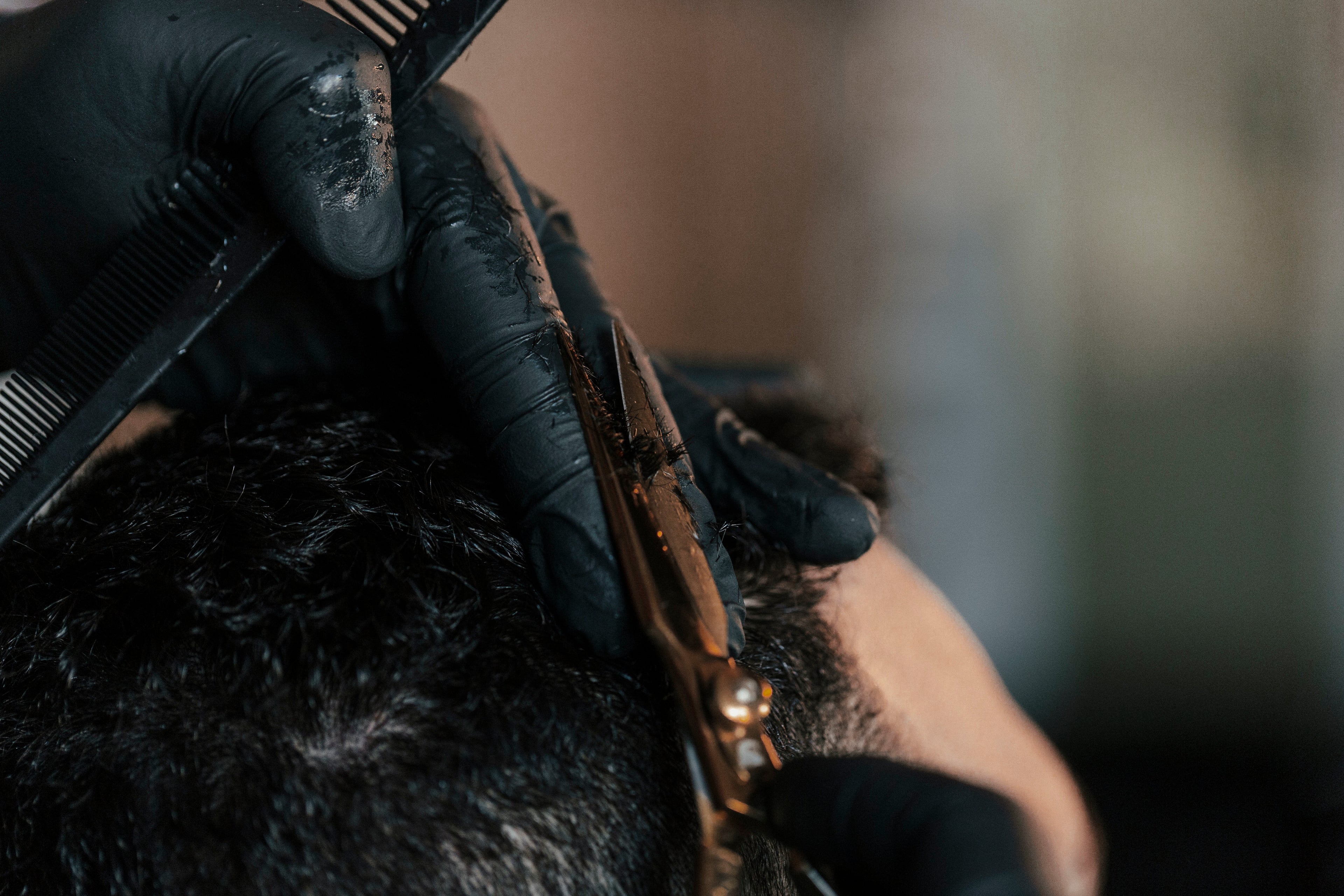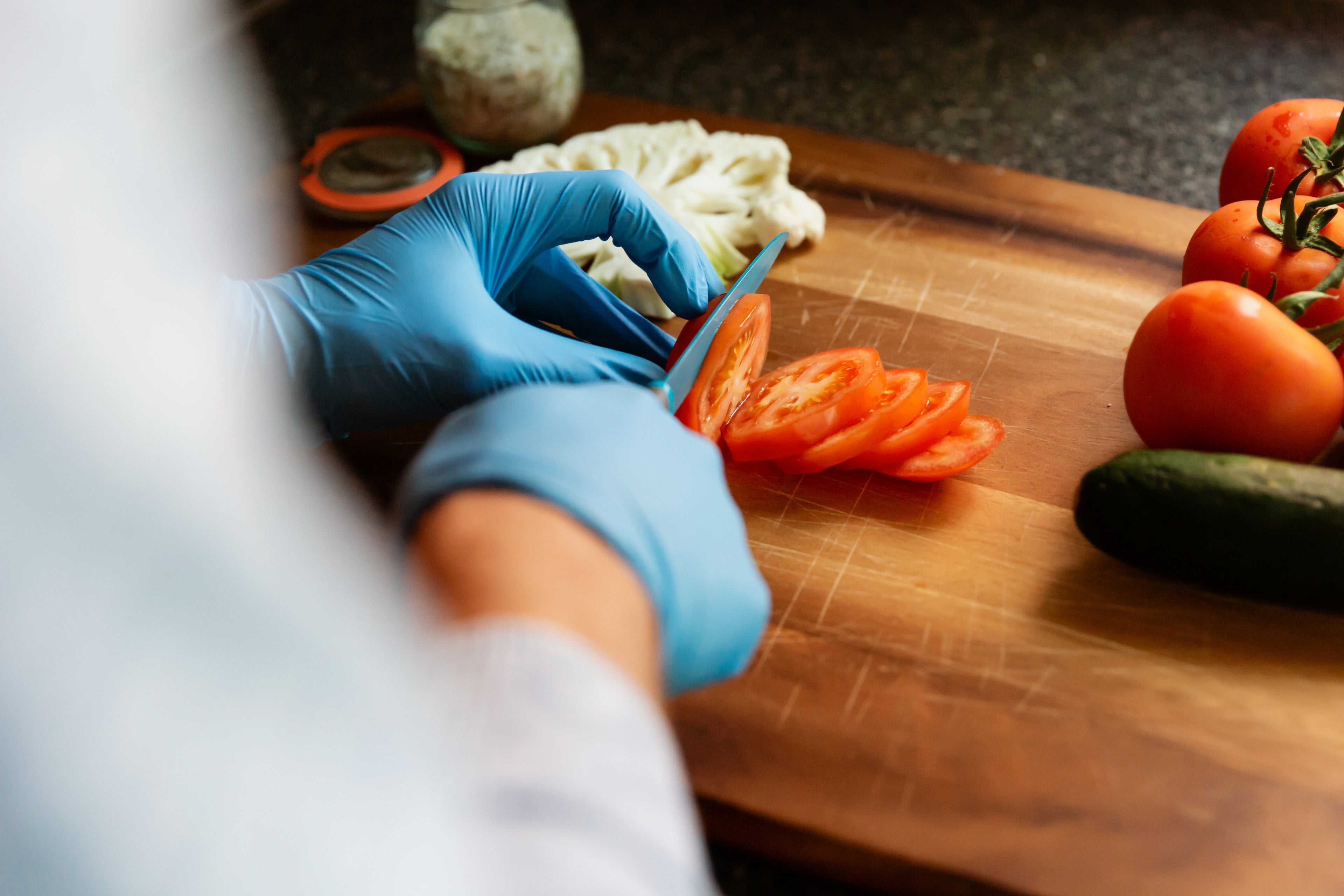

Environmentally conscious disposable gloves designed to provide reliable protection for a wide range of professional applications. Whether you're a healthcare provider, frontline worker, automotive technician, salon professional, or involved in food preparation, these single-use gloves offer an effective barrier against chemicals, contaminants, and other substances encountered in daily tasks
Get a grip on your glove expenses
-
Cleaning and Sanitation
Show me the best gloves -
Tattoo and Hair Studios
Show me the best gloves -
Food Handling and Preparation
Show me the best gloves -
Mechanical or Automotive
Show me the best gloves -
Healthcare
Show me the best gloves -
Laboratory and Chemical
Show me the best gloves
Eco-friendly | Wholesale pricing | Volume Pricing Available
Proven bestsellers
-
Black 4 mil eco-nitrile accelerator free single use gloves
Vendor:ShowaRegular price $214.70 CADRegular priceUnit price / per -
Black 6 mil eco-nitrile accelerator free single use gloves
Vendor:ShowaRegular price $296.60 CADRegular priceUnit price / per -
Green 4 mil eco-nitrile single-use gloves
Vendor:ShowaRegular price $121.70 CADRegular priceUnit price / per -
Black 4 mil eco-nitrile single-use gloves
Vendor:ShowaRegular price $121.70 CADRegular priceUnit price / per -
Blue 4 mil eco-nitrile disposable gloves
Vendor:ShowaRegular price $121.70 CADRegular priceUnit price / per -
Blue 8 mil eco-nitrile single-use gloves
Vendor:ShowaRegular price $0.00 CADRegular priceUnit price / per
Contact us about volume pricing
Benefits of single use gloves
PROTECT YOUR HANDS FROM CROSS-CONTAMINATION
When there are a variety of hazards in the workplace, choose SHOWA single-use gloves.
The Risks Of Cross-contamination
In just about any job, you interact with substances, bacteria, and viruses throughout the day. In most cases, it’s simply unavoidable. However, there are certain jobs in which the use of heavy-duty gloves is a bit much. Using single-use gloves is a much more appropriate option because you can use them for a single purpose and discard them before moving on to your next task.
When handling food, you should always swap out gloves when working with different foods. For example, if you are cutting chicken, it is smart to wear a set of gloves to protect yourself from potential bacteria found on raw meat. Before you move on from the chicken, it is vital that you switch to a new set of single-use gloves so you do not risk carrying bacteria over to your next station.
The same can be said for auto mechanics who must move between cars. In this case, instead of protecting yourself from the spread of potential bacteria, you’re protecting yourself from potentially hazardous chemical exposure. Using single-use gloves in this scenario prevents you from spreading the chemicals and compounds to your tools and other workstations.
Cross contamination can also occur in the following situations:
- Bacterial/viral contamination for first responders or hospital staff working with sick patients.
- Laboratory staff working with various contaminants that could be irritating to the skin or otherwise harmful.
Get a grip on the environment
-
Environmental impact of disposable gloves
Read nowDid you know that of the 150 billion pairs of gloves produced every year, an estimated 100 billion pairs of gloves are thrown away each year? As a result, piles of gloves end up in landfills each year.
Thanks to its special composition, Showa's EBT gloves decompose within 1 to 5 years in active landfills, where regular nitrile gloves need more than 100 years.
EBT requires biologically active landfills for biodegradation. This means gloves with EBT can’t begin to biodegrade prior to disposal. These abilities have been validated by independent certified laboratories using international test methods ASTM D5511 and D5526.
-
Showa's sustainability
Read nowTo Showa, sustainability isn’t just a commitment, it’s part of their legacy. Their EBT biodegradable nitrile gloves are the industry’s first, and today, SHOWA offers the most extensive selection of biodegradable hand protection on the market. EBT is a next step in the sustainability journey: a way to reduce the impact that gloves have on the environment.
This strategy remains a primary focus as Showa expands EBT into every colour and millimetre thickness within their product offering, including reusable gloves. This way they can meet the demands of today, without compromising for tomorrow.
-
How Eco Best Technology (EBT) works
Read nowEBT accelerates the biodegradation of nitrile to organic compound in biologically active landfills:
- [ 1 ]EBT materials are added to the nitrile during production
- [ 2 ]Gloves are disposed
[ 3 ]Gloves are transferred and discarded into biologically active landfills
- [ 4 ]Microorganisms break down the EBT gloves
- [ 5 ]Organic soil and bio-gas is left in its place






